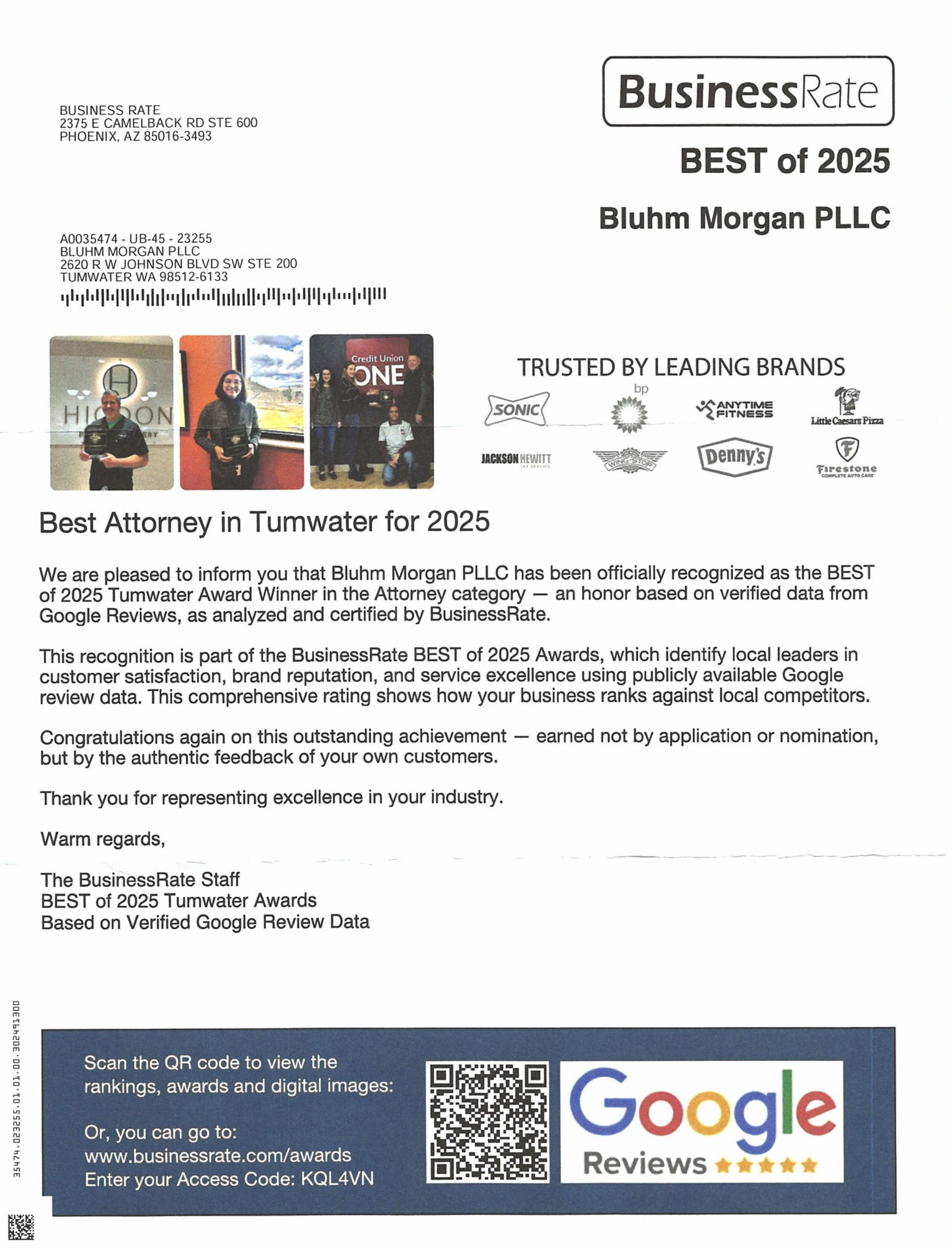Experience, Guidance, Results
Call to reach an attorney today.
Motor Vehicle Accidents
Premises Liability
Wrongful Death
Traumatic Brain Injuries
Protecting neighbors, friends, and families in Thurston County Since 1993
We know how overwhelming an accident can be. That’s why our attorneys handle every detail personally — from dealing with insurers to pursuing full compensation. You’ll always have direct access to your lawyer, and you’ll never face this process alone.
Injured in a car accident?
A sudden crash can leave you facing medical bills, lost income, and unanswered questions. We help accident victims understand their rights and pursue compensation for their injuries, vehicle damage, and recovery.
Hurt on someones property?
Unsafe conditions like wet floors, broken steps, or poor lighting can cause serious injuries. Property owners have a duty to keep their premises safe, and we help hold them accountable when they don’t.
Lost a loved one?
When unsafe conditions, reckless actions, or preventable mistakes lead to a fatal accident, families are left with unimaginable loss. Those responsible can be held accountable, and we help surviving families pursue justice, answers, and financial security during this difficult time.
We can also help:
Injured at work?
A workplace injury can disrupt your health and livelihood. Whether the injury happened on a job site, in an office, or while driving for work, we help you understand your options.

Best Attorney in Tumwater – 2025
Bluhm Morgan PLLC is proud to be recognized as the Best Attorney in Tumwater for 2025 by BusinessRate.
This award is based on verified Google Reviews and publicly available customer feedback, recognizing local law firms that demonstrate exceptional client satisfaction, reputation, and service excellence. Unlike nomination-based awards, this recognition reflects the authentic experiences of the people we serve.
For our team, this honor reinforces what matters most: providing responsive, personal legal guidance and standing by our neighbors when they need it most.
Don’t Wait — Evidence Fades Fast
As a full-service personal injury law firm, Bluhm Morgan PLLC represents clients in nearly every type of injury case. Our attorneys bring decades of combined experience to help victims of motor vehicle accidents, unsafe properties, defective products, and insurance disputes. Whatever the cause, if you were injured through no fault of your own, we’re ready to help.